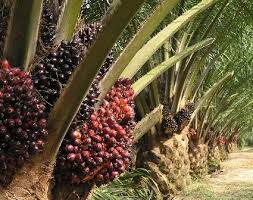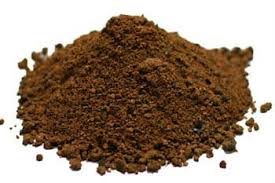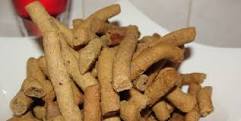Granulated Single Super Phosphate Fertilizers Production in Nigeria (from Rock Phosphate); The Feasibility Report.

In Nigeria, agriculture has remained the largest sector of the economy. It generates employment for about 70% of Nigeria’s population and contributes about 40% to the Gross Domestic Product (GDP) with crops accounting for 80%, livestock 13%, forestry 3% and fishery 4%.
It plays significant roles in the nation’s economic development. These roles include: contribution to the country’s gross domestic product; source of income and decent living for a large proportion of the population; provision of adequate food for the people; supply of raw materials required by the industrial sector; generation of foreign exchange through export; provision of employment opportunities for the teeming population.
Nigeria has a land area of 98.3m hectares. At present about 34m hectares or 48% are under cultivation. Under the (1999) Constitution, responsibility for agricultural and rural development is shared among the federal, state and local governments. There is no doubt that considering the vast area of uncultivated land coupled with the natural fertility of its soil, Nigeria has great agricultural potentials.
In like manner, Nigeria has great potentials for fertilizer consumption and use. A study conducted by the Agricultural Projects Monitoring and Evaluation Unit (APMEU) in 1990 put the agronomic potential at 7 million metric tons. With increased release of higher yielding and fertilizer consuming crop varieties, this potential is now much higher than the 7 million metrics tons.
Fertilizer consumption (kilograms per hectare of arable land) in Nigeria was 2.12 as of 2009. Its highest value over the past 7 years was 9.98 in 2006, while its lowest value was 2.12 in 2009.
Nigeria also has great potential to produce substantial quantities of its fertilizer requirements. The abundant natural gas most of which is now being flared can be harnessed to produce large quantities of nitrogenous fertilizers. Commercial quantities of rock phosphate deposits abound in Sokoto, Niger, Kwara, Oyo, Ogun axis that can be used for the production of phosphate fertilizers.
Single Super phosphate is a chemical Fertilizer which contains Phosphorus as a major plant nutrient. It is relatively very cheap and contains many micro nutrients like Calcium, Magnesium, Iron, Aluminum, Sulphur and Gypsum. The Gypsum works as a soil conditioner.
The SSP is manufactured bythe reaction of finely grounded Rock Phosphate with diluted Sulfuric Acid. The SSP is available in powder and granulated form. The Powder form is called as PSSP and the granulated form is called as GSSP. The PSSP and GSSP are available in two grades. Grade A and grade B.
The grading is done on the basis of water soluble Phosphorous pentaoxide present in the product. The A grade contains 16% water soluble phosphorous penta0xide and the B grade contains 14% W.S. P2O5. The granulated Super phosphate is some-what costlier in comparison to PSSP because of the cost of granulation.
The GSSP dissolves slowly in the water present in the soil so it is available to the crops for a longer time. The free Phosphoric acid present in the SSP is very useful for alkaline soils. The PSSP & GSSP are white, cream, gray, brown or black in colour.
Due to the lack of local production most of the fertilizer used in Nigeria now is imported. It is important to note that over eighty percent (80%) of all the fertilizer consumed in the country is imported.
The consequences of relying on imported fertilizer include drain on foreign reserve, insufficient supply due to high capital requirements for importation and consequent high retail prices for the farmers, which renders the input unaffordable.
These developments and actions which to a large extent were uncoordinated have caused the quantities of fertilizers available to farmers to remain abysmally low and very expensive.
This feasibility report seeks to examine the financial viability or otherwise of establishing a granulated Single Super phosphate fertilizer plant in Nigeria. The major raw materials for this project include – finely grounded Rock Phosphate and diluted Sulfuric Acid and can be sourced locally.
The proposed plant capacity is one hundred (100) tons per day and the SSP plant comprises of coarse rock elevator, coarse rock hopper with feeder, close circuit ball mill, ground rock elevators, weigh rock feeder, Rotameter for sulphuric Acid, hydrofluoro silisic Acid, Mixer, R. P. Den, Den, Cutter, Mixer paddle, ground rock hopper, Conveyer Belts, Scrubber Fan, conventional Scrubber, venturi Scrubber, Cyclonic separator, Scrubber Ducting, chimney, sulphuric Acid ( 98%) tank, Water Tank, Acid pumps, Zero effluent Pits, Scrubber pump / recycle pump, Agitator, Feed Elevator, vibrating screen, chain mill, product hopper, weighing machine, stitching machine, slat conveyer, hand stitching machine, bags shifting trolleys, electrical panel board, remote control push buttons unit, capacitor bank, tools and tackles and weigh bridge.
The GSSP plant (capacity – one hundred (100) tons per day) comprises of feeding belt to granulator feed belt, granulator feed belt, rotary granulator drum, granulator to dryer belt, rotary dryer drum, ground furnance, atomising blower, heating and pumping unit, secondary fan, temperature indicator, service tank, dryer to cooler belt, cooler drum, screen feed elevator, cyclonic separator, dryer / cooler cyclone fan, wet scrubber, dust collection system, chimney, vibrating screens, chain mill, product belt, product hopper, weighing machine, stitching machine, slat conveyer, bags shifting trolleys, hand stitching machine, Bags shifting trolleys, Furnace Oil/ L.D.O. Tank, Overhead Water tank, tubewell, electrical panel board, remote controlled push buttons unit, capacitors, Laboratory Equipments, Essential Requirement For One Year and foundation bolts.
The plant would operate at ninety percent (90%) of the installed capacity working double shifts of eight (8) hours each in three hundred (300) days per annum producing ninety (90) tons per day of grade A (P2O5 18% min available), single super phosphate fertilizer.
Table of Contents
EXECUTIVE SUMMARY 1.0 Business Overview 1.1 Description of the Business 1.2 Vision and Mission Statement 1.3 Business Objective 1.4 Value Proposition 1.5 Critical Success Factor of the Business 1.6 Current Status of Business 1.7 Description of the Business Industry 1.8 Contribution to Local and National Economy 2. Marketing Plan 2.1 Description of product 2.2 Product Packaging and delivery 2.3 The Opportunity 2.4 Pricing Strategy 2.5 Target Market 2.6 Distribution and Delivery Strategy 2.7 Promotional Strategy 2.8 Competition 3. Production Plan 3.1 Description of the Location 3.2 Raw Materials 3.3 Production Equipment 3.4 Production Process 3.5 Production Cost 3.6 Stock Control Process 3.7 Pre-Operating activities and expenses 3.7.1 Operating Activities and Expenses 3.8 Project Implementation Schedule 4.0 Organizational and Management Plan 4.1 Ownership of the business 4.2 Profile of the promoters 4.3 Key Management Staff 4.3.2 Management Support Units 4.4 Details of salary schedule 5. Financial Plan 5.1 Financial Assumption 5.2 Start – Up Capital Estimation 5.3 Source of Capital 5.4 Security of Loan 5.5 Loan Repayment Plan 5.6 Profit and Loss Analysis 5.7 Cash Flow Analysis 5.8 Viability Analysis 6.0 Business Risk and mitigation factor 6.1 Business Risks 6.2 SWOT Analysis
Project Specification:
Additional Info
Get this Report
Direct bank transfer
To order the report, Please do pay the sum of ₦200,000 into
Account Name : Foraminifera Market Research Ltd
Account Number : 274 20 569 37
Account Name : Foraminifera Market Research Ltd
Account Number : 101 76 603 95
Account Name : Foraminifera Ventures
Account Number : 011 66 066 32
Make your payment directly into our bank account. Please use your Order ID as the payment reference. Your order will not be shipped until the funds have cleared in our account.
Instructions
After payment call us on 01 -29 52 413 / 08033782777 or email us at foraminiferamarketresearch@yahoo.com with the payment details. After payment confirmation, the soft copy of the report would be sent to you within 24 hours.



